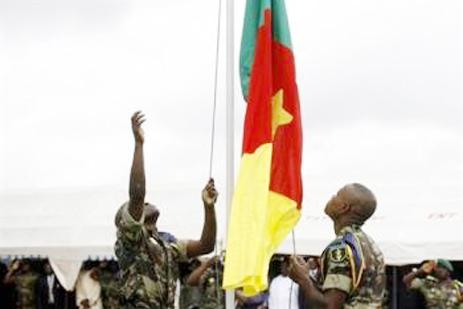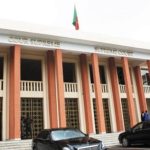Today August 14, the Bakassi Peninsula in Cameroon administration is definitely like the other parts of the country.
This ends the “special transitional regime” under which it was placed on
August 14, 2008, in accordance with the Greentree agreement, a peaceful
settlement of an armed conflict between Cameroon and Nigeria.
People living in Bakassi would have now decided to be Cameroonians or Nigerians before August 14, 2013, the date that marks the end of the “special transitional regime” five years under which the peninsula was governed since 2008, the date of transfer of authority between the two countries. In this special transitional regime, Cameroon pledged to make it easier for Nigerian nationals living in the area to exercise their rights, and to allow Nigerian civil authorities access to the Nigerian population living in the area. Cameroon also agreed not to enforce its customs laws or the laws on immigration to Nigerian nationals living in the area but according to the agreement these regulations now apply from today. But, Nigerians living in the area are not sufficiently informed. “From my observation, the people have to be sensitized about this date. They are not aware of this major step that will dramatically change their lives forever in the area,” said Ndoh Bertha Bakata, Chairperson of the Coordination and Follow-up Committee on the Implementation of Priority Projects in Bakassi Zone.From August 14, 2013, this part of the country will now be administered by the State of Cameroon as all other regions of the country. Those who choose to be Nigerians and stay in Cameroon will be regarded as foreigners and must obtain a permit. In 2008, the head of State, Paul Biya assured Nigerians in the area: “… for our Nigerian brothers and sisters who have chosen to reside in Cameroon, as well those who are in Bakassi in their numbers, and have lived in Cameroonian territory for many years. I want to reassure them that their safety and their rights will continue to be guaranteed, they may, as in the past, conduct their business undisturbed, provided, of course, they comply with the laws and regulations of Cameroon” , said Paul Biya.All this is in accordance with the Greentree Agreement signed in August 2006. According to this agreement, “Cameroon, after Nigeria has transferred authority, guarantees to Nigerians living in the Bakassi Peninsula the respect of fundamental rights and freedoms enshrined in international human rights law and other relevant rights of international law.” The agreement states in its first article that “Nigeria recognizes that sovereignty over the Bakassi Peninsula lies with Cameroon in accordance with the judgment of the International Court of Justice on 10 October, 2002 in the case concerning the Land and Maritime Boundary between Cameroon and Nigeria.”Already, all the actors (Nigerian, Cameroonian and UN delegations) of the Joint Commission of the United Nations responsible for the implementation of the judgment of the International Court of Justice of 10 October 2002 on the land and maritime boundary dispute between Cameroon and Nigeria met in Yaoundé in April 2013 for their 31st session in order to assess the degree of implementation of the process.During this meeting, a location agreement of boundary pillar sites on about 1913 km of the 2000 border line between the two countries was signed, under the auspices of the President of the Commission and the Special Representative of the UN Secretary General for Africa, Said Djinnit.He welcomed the progress and urged both parties to work on the two remaining challenges to complete the Bakassi issue: the final mapping and boundary agreement.The peaceful settlement of this conflict is an example in Africa where armed conflicts are legion. “To get there, you know, we conducted long and difficult negotiations, negotiations throughout which our people were able to exercise restraint and patience, but also perseverance and determination,” stated Paul Biya
JUDE VIBAN,




